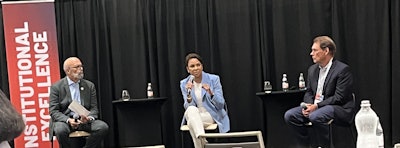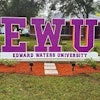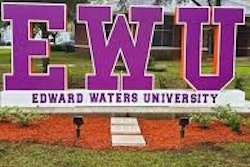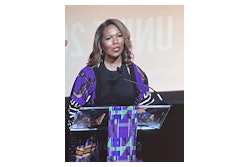At Monday's UNITE: Together We Lead conference in Atlanta, two visionary leaders sat down to discuss a revolutionary approach to building wealth at historically Black colleges and universities (HBCUs)—one that starts in the classroom and ends with transformational giving.
 UNCF President Dr. Michael Lomax moderates a fireside chat with Spelman College Interim President Rosalind Brewer and Phil Gross, co-founder of Adage Capital Management.
UNCF President Dr. Michael Lomax moderates a fireside chat with Spelman College Interim President Rosalind Brewer and Phil Gross, co-founder of Adage Capital Management.
"Spelman is a strongly Pell eligible student base, and we are at least 60% Pell eligible," Brewer told the audience of HBCU leaders. "We know that for every student that comes to our institution, they will graduate probably with at least $30,000 in student loans. So our student is not the affluent that most people think."
This reality check challenges common perceptions about one of the nation's most prestigious HBCUs. Despite Spelman's stellar reputation and significant endowment, Brewer emphasized that they are "healthy but not wealthy"—a distinction that shapes every strategic decision the college makes.
The financial discipline that characterizes Spelman's approach to its endowment—maintaining a strict draw rate between 4.7% and 5.2%—has evolved from necessity. Twenty years ago, the college transitioned from mutual funds to private equity investments, a move that demonstrated institutional maturity to potential donors who increasingly asked tough questions about return on investment.
For Gross, the motivation behind Project ACCLAIM stems from personal experience with transformative mentorship. Growing up with an alcoholic father and no family guidance, he credits a series of educators—from a sixth-grade gym teacher to a University of Wisconsin professor—with changing his life trajectory.
"When you go from making $16,000 a year at LaSalle National Bank to making more money than my dad ever made as a teacher one year later, and you give credit to that success to the school that brought you there, you have to give back," Gross reflected.


















